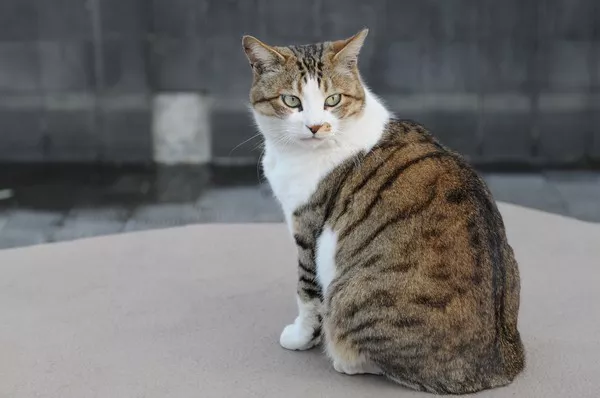Cats are known for their discerning taste and unique dietary needs. As obligate carnivores, they require a diet rich in animal proteins and certain nutrients to thrive. Pet owners often find themselves asking questions about what human foods can be safely included in their cat‘s diet. One common query is whether cats can eat boiled eggs. This article will explore the safety, nutritional benefits, preparation methods, health considerations, feeding guidelines, and the importance of consulting with a veterinarian regarding boiled eggs in your cat’s diet.
Can Cats Eat Boiled Eggs?
Boiled eggs can be a healthy addition to your cat’s diet, primarily due to their high-quality protein content. Protein is essential for muscle growth, repair, and overall health in cats. Eggs are also rich in essential amino acids, which are the building blocks of proteins. Amino acids such as taurine, which is crucial for heart and eye health, are naturally found in animal-based proteins, making boiled eggs an excellent supplemental source.
Additionally, eggs contain important vitamins and minerals, including Vitamin A, B vitamins (such as B12 and riboflavin), and selenium. These nutrients support various bodily functions, including immune response and energy metabolism, further emphasizing the benefits of incorporating boiled eggs into your cat’s diet.
Moderation
While boiled eggs provide several nutritional benefits, moderation is key. Cats have specific dietary requirements that must be met through their primary food sources, typically high-quality commercial cat food formulated to meet their nutritional needs. Eggs should be seen as an occasional treat rather than a staple part of their diet. Feeding boiled eggs in moderation can prevent dietary imbalances and ensure that your cat receives a well-rounded nutrition profile.
Preparation and Serving
Proper Cooking
When considering boiled eggs for your cat, proper cooking is essential. Raw eggs pose a risk of bacterial contamination, particularly from Salmonella. Salmonella can cause severe gastrointestinal distress in both cats and humans. Fully cooking the eggs eliminates this risk and makes them safe for your pet to consume. Boiling eggs until both the whites and yolks are firm is the best practice to ensure their safety.
No Seasoning
Another critical aspect of preparing boiled eggs for your cat is to serve them plain. Seasonings such as salt, pepper, or other spices can be harmful to cats. For example, salt can lead to sodium ion poisoning, while some spices may cause digestive upset. The best way to serve boiled eggs to your cat is to remove the shell, chop the egg into small, manageable pieces, and offer them without any added ingredients.
Health Considerations
Allergies and Sensitivities
While many cats can enjoy boiled eggs without issues, it’s essential to monitor for any signs of food allergies or sensitivities. Symptoms may include gastrointestinal upset, vomiting, diarrhea, or skin irritations. If you notice any adverse reactions after introducing boiled eggs into your cat’s diet, it’s advisable to discontinue feeding them and consult with a veterinarian.
Digestive Health
Although boiled eggs can be a nutritious treat, they should not replace your cat’s primary balanced diet. Overfeeding eggs can lead to digestive issues such as diarrhea or upset stomach. Cats have unique digestive systems, and any significant changes to their diet should be made gradually. Maintaining a balance between their regular cat food and occasional treats like boiled eggs is crucial for overall health.
Feeding Guidelines
Portion Size
When incorporating boiled eggs into your cat’s diet, it’s essential to adhere to appropriate portion sizes. A small amount, such as a teaspoon of chopped egg or a small piece, is sufficient as an occasional treat. This moderation ensures that your cat benefits from the nutritional advantages of boiled eggs without exceeding their caloric needs or causing digestive disturbances.
Frequency
Feeding boiled eggs should not be a daily occurrence. Limiting the frequency of this treat helps avoid dietary imbalances and ensures that your cat continues to receive the necessary nutrients from their primary food source. A good rule of thumb is to offer boiled eggs once a week, if at all, allowing your cat to enjoy this protein-rich treat while maintaining a balanced diet.
Consultation with a Veterinarian
Before introducing any new food into your cat’s diet, including boiled eggs, it’s essential to consult with a veterinarian. Each cat has unique health needs and conditions that must be considered when modifying their diet. A veterinarian can provide tailored advice on the suitability of boiled eggs for your pet, taking into account their age, weight, health status, and dietary preferences. This professional guidance ensures that any dietary changes support your cat’s overall well-being.
Conclusion
In conclusion, boiled eggs can be a safe and nutritious treat for cats when prepared and served correctly. They provide high-quality protein and essential nutrients beneficial to feline health. However, moderation is crucial, as eggs should complement, not replace, a balanced cat diet. Always prioritize proper cooking methods and avoid seasoning, and pay attention to your cat’s individual health considerations. Finally, consulting with a veterinarian can help you make informed decisions regarding your cat’s diet, ensuring their nutritional needs are met effectively. By following these guidelines, you can safely include boiled eggs in your cat’s feeding routine, enhancing their diet with this tasty and nutritious treat.
Related Topics



























